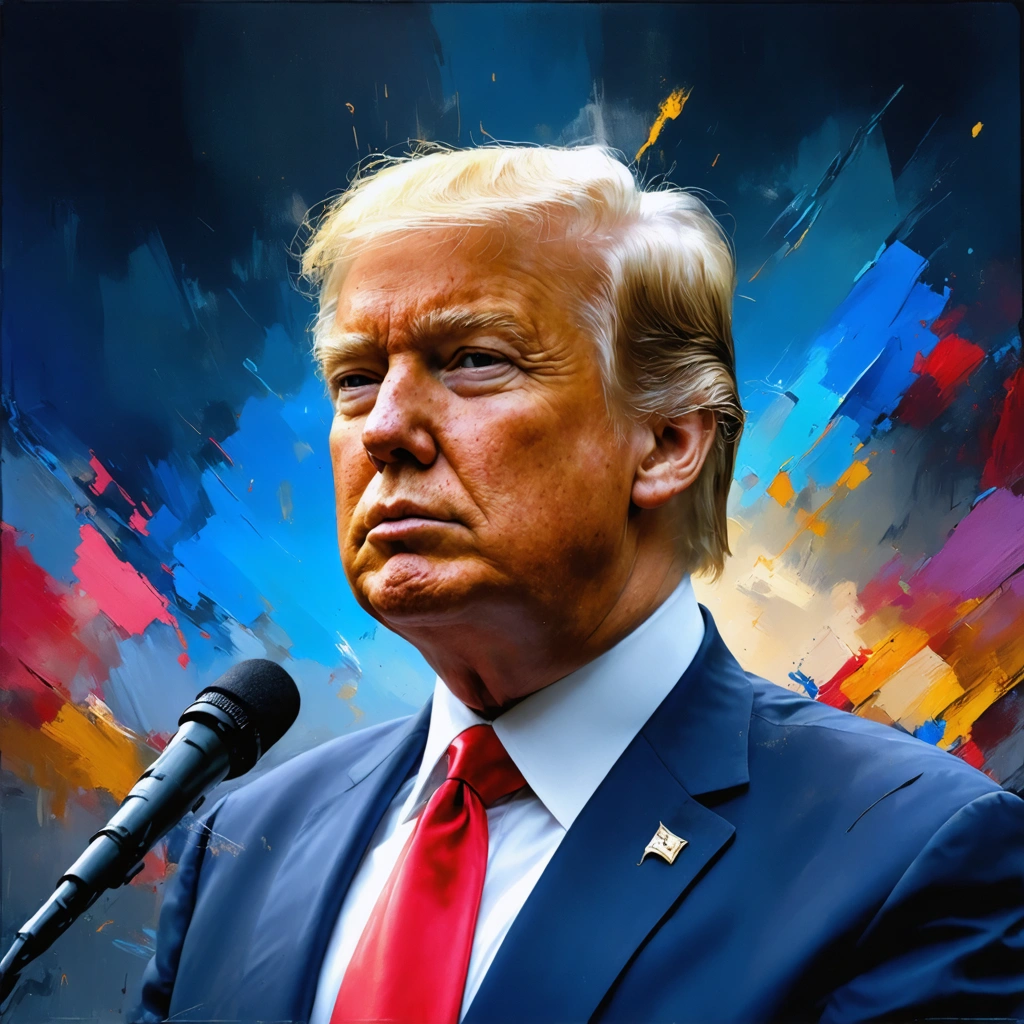
Introduction: A Vision for Peace or a Pursuit of Prestige?
The legacy of a president is often measured by the ideals set forth during an era of leadership. In his inaugural address, President Trump declared that his “proudest legacy will be that of a peacemaker and unifier.” This statement not only set the tone for an administration that promised bold actions, but also hinted at a desire to be recognized on the world stage through significant accolades such as the Nobel Prize. While his rhetoric appeared to champion global harmony, critics have consistently raised concerns regarding his foreign policy decisions, particularly those viewed as potentially pro-active towards Russia and Ukraine. The duality of his message—peacemaking as an aspiration and controversial actions in practice—forms the basis for a deeper exploration into Trump’s Nobel Prize obsession and its multidimensional impact on global diplomacy.
Political Context and Critiques of Diplomatic Stance
Understanding the Political Landscape
The international political climate during President Trump’s tenure was marked by a dynamic and often tense balance of power. Amid ongoing conflicts and geopolitical shifts, Trump’s overtures towards peace sometimes appeared entwined with strategies to secure personal and national prestige. His persistent references to peacemaking resonated with segments of the electorate but also invited scrutiny from critics who noted his policies might have compromised traditional alliances and norms.
Accusations of Bias in the Russia-Ukraine Conflict
Critics argue that while Congress and international institutions largely condemned aggressive tactics and violations of sovereign borders, Trump’s discourse occasionally aligned with narratives that some interpreted as sympathetic to Russian interests. Such perceptions were not entirely baseless: decisions and public statements suggested a willingness to negotiate with controversial figures on the assumption that stability could be achieved through unconventional dialogue. This juxtaposition of a Nobel-worthy ideal of peace with pragmatic—and sometimes opportunistic—political maneuvering created a complex scenario in which the pursuit of an international award became intertwined with the politics of power and legitimacy.
The Nobel Prize as a Symbol of Global Recognition
Nobel Prize: More Than an Award
The Nobel Prize is widely regarded as one of the highest honors that recognize contributions to peace, literature, science, and social justice. For a political figure, achieving such an honor not only validates the chosen policies but also elevates the individual’s stature on the global stage. In the business and political arenas, awards carry symbolic capital that can influence future negotiations, diplomatic relations, and legacy-building efforts. Trump’s allusions to world peace, coupled with his ambition for recognition, tapped into this symbolic capital. His repeated references to such accolades insinuated that his diplomatic efforts were geared as much toward achieving substantive international peace as they were toward receiving validation from esteemed global institutions.
The Business Case for National Prestige
In many ways, Trump’s approach to diplomacy echoed a businesslike strategy of brand-building. Just as companies seek to enhance their reputation to secure market advantages, a nation under his leadership appeared to leverage international accolades to boost its soft power. The potential for securing a Nobel Prize—and by extension, global acknowledgment of the administration’s policies—was used to signal that the nation was not merely economically competitive but also morally and ethically progressive. This innovative approach represented a shift away from traditional indicators of peace and stability, favoring instead the optics of achievement and ceremony.
Implications for International Relations and Diplomatic Strategy
Long-Term Effects on Global Diplomacy
The intertwining of domestic political ambitions with international peacekeeping initiatives has long-term implications that extend well beyond a single term or presidency. By emphasizing a narrative of peacemaking and leveraging accolades such as the Nobel Prize, political leaders can reshape diplomatic engagements. However, this reorientation risks reducing complex geopolitical conflicts to elements of a public relations campaign. The consequences are multifaceted: while garnering the support of peace advocates, such strategies can alienate traditional allies and embolden adversaries. In Trump’s case, critics have pointed to a number of decisions that suggested a prioritization of style over substance, a cautionary reminder that symbolism in diplomacy must be matched by tangible results.
Balancing Legacy, Recognition, and Practical Policy
In the realm of international business and high-stakes diplomacy, leaders must continually balance their personal legacy with the pragmatic needs of statecraft. Trump’s Nobel Prize obsession underscores the vision of a leader who believed that international recognition could serve as a multiplier for influence. Business strategy in modern politics often involves presenting a polished brand image to both domestic voters and the global community. However, as seen with the controversy surrounding Trump’s policies regarding Russia and Ukraine, the pursuit of awards and accolades can sometimes mask deeper policy challenges and ethical dilemmas. Striking the right balance between visionary claims and effective governance remains a persistent challenge in any administration.
In conclusion, the legacy of Trump’s tenure as seen through the lens of his Nobel Prize ambitions illustrates the complexities of blending national pride with international diplomacy. It presents an intriguing case study of how personal ambition and aesthetic symbolism can drive political agendas. Moving forward, policymakers and analysts will continue to debate whether the quest for accolades like the Nobel Prize ultimately serves the cause of global peace, or if it is merely a strategic maneuver that underscores the tactical interplay of power and recognition in modern geopolitics.




